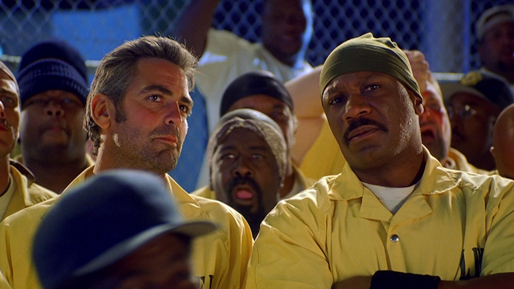Al Pacino may be the greatest American actor ever. There are others who have claim to the title as well, Brando and De Niro being the obvious examples (and we'll get to them), but Pacino has always been my personal favorite. His power, his vulnerability, his range are all amazing to me. Some might not think of Pacino as having much range, seeming to play the same character or same type all the time, but if you look at the subtlety of his performance in Insomnia against the wildness of his work in Dick Tracy, to his mostly stoic Michael Corleone, his hilarious Tony Montana, and his tragic and beautiful performance in Dog Day Afternoon (his best work) you see him in different voices, different body languages, different styles. He has an amazing range if you really look at him.

I didn't realize that he is now 78 years old, 3 years older than De Niro (whom I'd always thought was older than Pacino), but still working. We don't have much of him left but let's appreciate what he's given us and talk about the mans work a bit.

Pacino's Heat director Michael Mann said "De Niro sees the part as a construction, working incredibly hard, detail by detail, bit by bit, building character … [Pacino is] more like Picasso, staring at an empty canvas for many hours in intense concentration. And then there’s a series of brushstrokes. And a piece of the character is alive.” Some argue that Pacino's brushstrokes are too big, and sometimes I agree but I still think they work for the most part.

Sometimes his big moments aren't even necessarily planned. Hank Azaria has said the iconic "she's got a GREAT ASS!!!" scene in Heat came about because they'd done so many takes and Pacino never went that big, he just did it as a way to break up the energy of the scene, knowing that sometimes drug addicts had big outbursts like that. Then Mann cut a scene of Pacino doing cocaine, and the scene ended up feeling like Pacino wanting to go big rather than his character being an unstable addict. I find that kind of stuff fascinating. A directorial editing choice changed the nature of the acting by taking context out of it, which made the motivations unclear.

Pacino has earned his place in movie history and in my heart as one of the great actors of all time. To those who are only familiar with the pop culture version of Pacino, I would suggest checking out specifically his work in The Merchant of Venice and his own directorial debut Looking For Richard, the former a straight adaptation of one of my least favorite Shakespeare plays, and the latter a half staging of Richard III and half exploration of Shakespeare and why he works and what he means to people.
My ratings of his movies:
- The Godfather - 10/10
- Dog Day Afternoon - 10/10
- The Godfather part II - 10/10
- Looking for Richard - 9/10
- Heat - 9/10
- Insomnia - 9/10
- Donnie Brasco - 9/10
- Scarface - 9/10
- Angels in America - 9/10
- The Merchant of Venice - 9/10
- Glengarry Glen Ross - 8/10
- Scent of a Woman - 8/10
- Sea of Love - 8/10
- The Insider - 8/10
- Serpico - 8/10
- Scarecrow - 8/10
- ...And Justice for All - 7/10
- The Godfather part III - 7/10
- Carlito's Way - 7/10
- The Panic in Needle Park - 7/10
- Dick Tracy - 6/10
- The Devil's Advocate - 6/10
- Any Given Sunday - 6/10
- The Recruit - 6/10
- Frankie and Johnnie - 5/10
- Bobby Deerfield - 4/10
- 88 Minutes - 3/10
- Gigli- 1/10
- Jack and Jill - 1/10















































